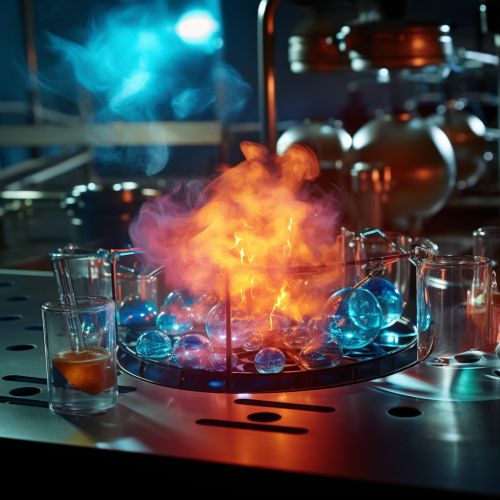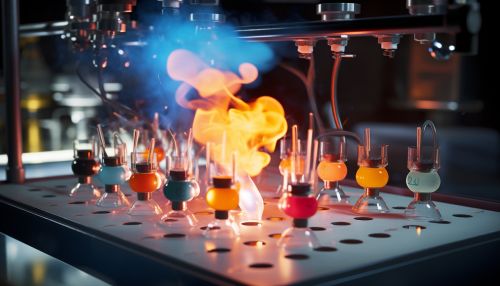Redox
Introduction
Redox (short for reduction–oxidation reaction) is a type of chemical reaction in which the oxidation states of atoms are changed. Redox reactions are characterized by the transfer of electrons between chemical species, most often with one species (the oxidant) undergoing reduction (gaining electrons) while another species (the reductant) undergoes oxidation (loses electrons).


Oxidation and Reduction
In the context of redox reactions, the term 'oxidation' refers to the loss of electrons by a molecule, atom, or ion, whereas 'reduction' refers to the gain of electrons. The species that loses electrons is said to be oxidized, while the species that gains electrons is said to be reduced. These two processes always occur simultaneously and cannot occur independently of each other, hence the term 'redox' reaction.
Oxidation State
The oxidation state, or oxidation number, is a concept in chemistry that allows the counting of electrons transferred between species in a redox reaction. It is a hypothetical charge that an atom would have if all bonds to atoms of different elements were 100% ionic. Oxidation states are typically represented by integers, which can be positive, negative, or zero.
Redox Reactions in Biochemical Processes
Redox reactions play a crucial role in many biochemical processes, including cellular respiration, photosynthesis, and the synthesis of many important biomolecules. In cellular respiration, for instance, the redox reaction involving glucose and oxygen leads to the production of carbon dioxide, water, and energy.
Redox Reactions in Industrial Processes
Redox reactions are also fundamental to many industrial processes, such as the production of fertilizers, plastics, and pharmaceuticals. They are also involved in the extraction of metals from their ores, in electrochemical cells and batteries, and in the process of corrosion and rusting.
Redox Reactions in Environmental Processes
In environmental processes, redox reactions play a key role in the cycling of elements such as carbon, nitrogen, and sulfur. They are also involved in the breakdown of organic matter in soils and sediments, and in the detoxification of pollutants in natural and engineered systems.
Redox Reactions in Analytical Chemistry
In analytical chemistry, redox reactions are used in volumetric analyses to determine the concentration of an unknown substance. This is done by titrating the unknown substance with a solution of a known concentration and observing the redox reaction that occurs.
